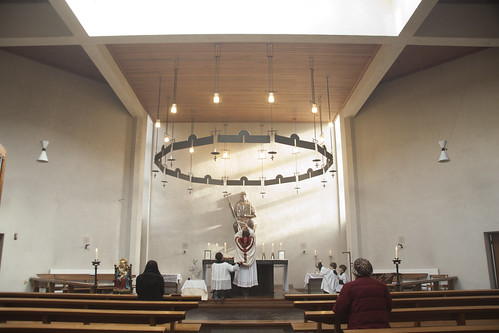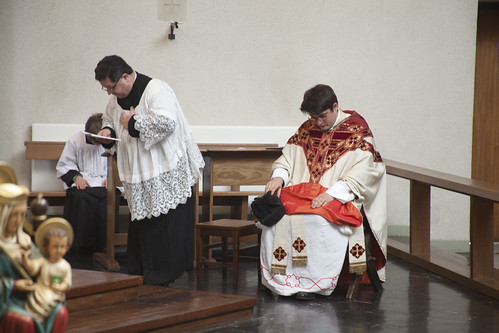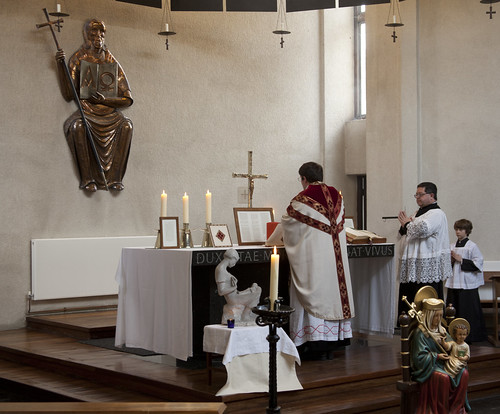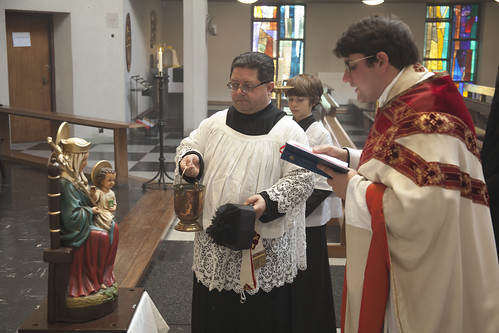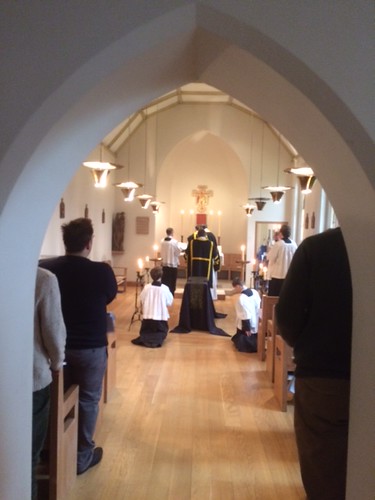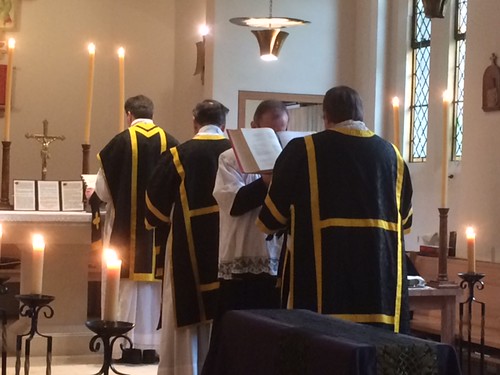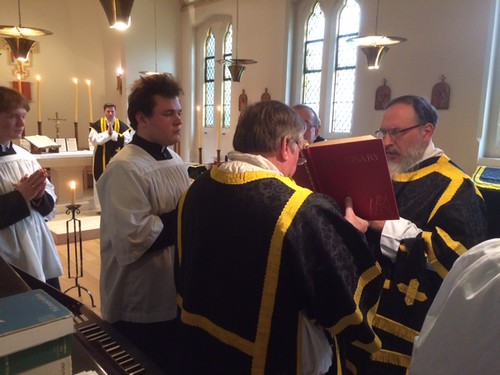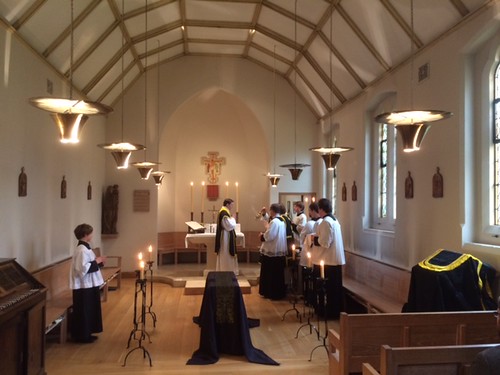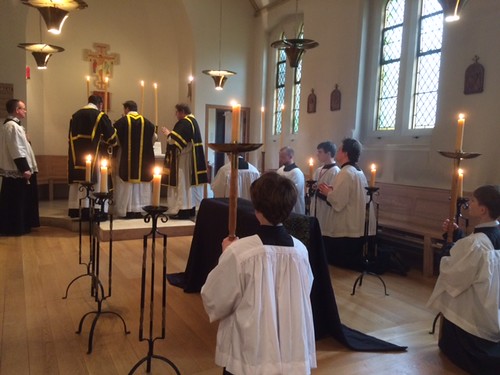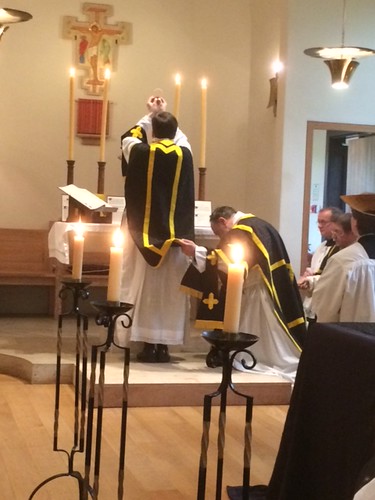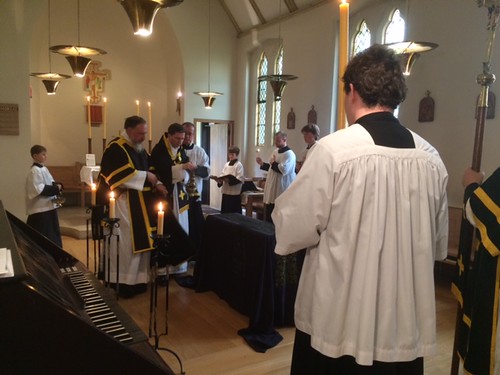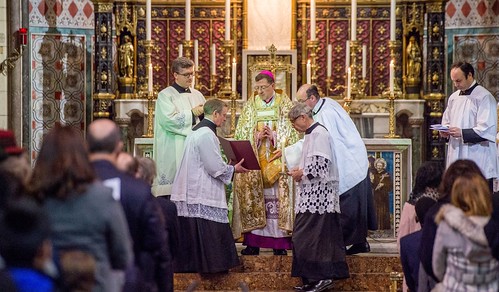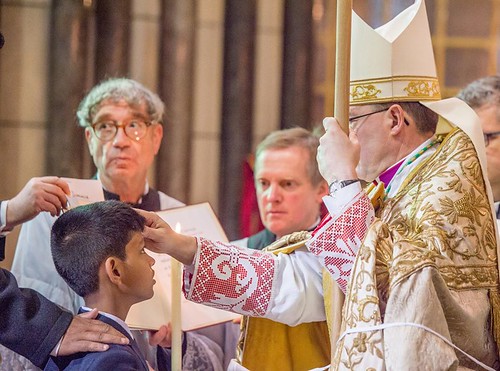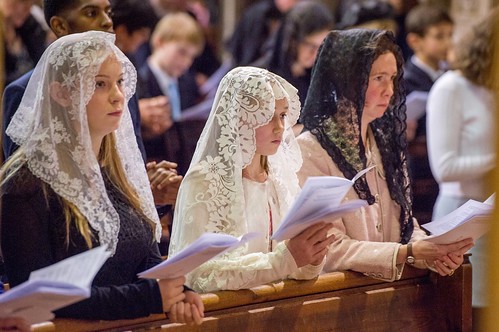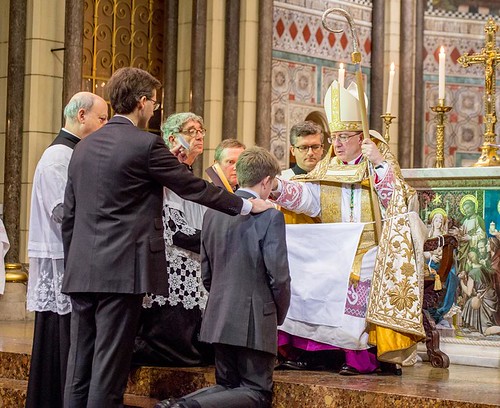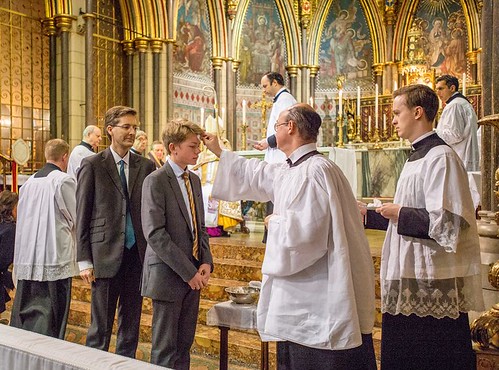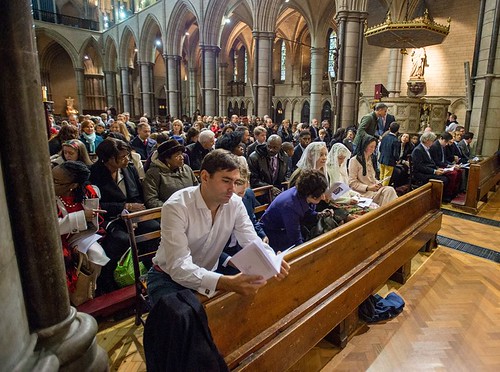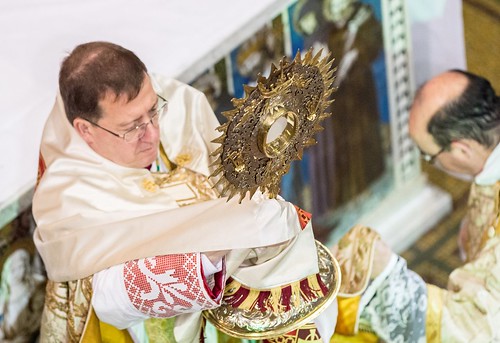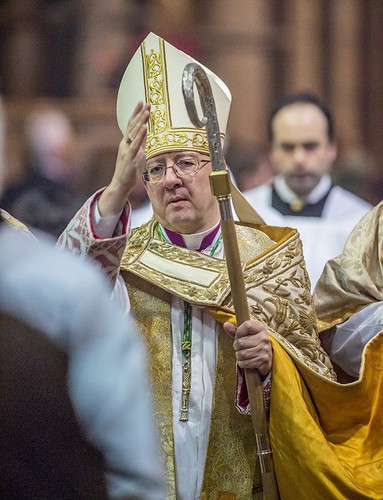Chairman's Blog
The meaning of Papal silence
 |
| Jesus is stripped of His garments. |
Support the work of the LMS by becoming an 'Anniversary Supporter'.
Does anyone want a harmonium?
A (more or less) working harmonium is Holy Trinity Church, Hethe, Oxfordshire is available for anyone who wants it. (Contact details here.)
Contact the parish to see it or collect it.
Holy Trinity is a lovely church, which thanks to an enterprising former Parish Priest has a very interesting 18th century chamber organ (in need of some restoration). For some reason it also has this harmonium, which takes up a good deal of space in the tiny choir loft.
Someone: give it a home!
Support the work of the LMS by becoming an 'Anniversary Supporter'.
Religious absolutism
Reposted from January 2015
-----------------------------------------------------
Some years I recall a fellow Oxford academic speculating about why Christianity and Islam, among world religions, were the ones used to justify the persecution of religious dissent. Perhaps, he suggested, it was because they were absolutist religions: they claimed an exclusive possession of the truth.
 It wasn't clear how he imagined Hinduism and Buddhism worked; I fancy he was as ignorant about them as I was, and am. But it must have been a long time ago, because this conversation clearly predated the emergence, at least into the Western media, of militant Hinduism in India, and the persecution of Christians and Muslims by militant Buddhists in Sri Lanka and Burma.
It wasn't clear how he imagined Hinduism and Buddhism worked; I fancy he was as ignorant about them as I was, and am. But it must have been a long time ago, because this conversation clearly predated the emergence, at least into the Western media, of militant Hinduism in India, and the persecution of Christians and Muslims by militant Buddhists in Sri Lanka and Burma.
So, so much for that idea. But the idea of religious absolutism has been wheeled out again in the wake of the Charlie Hebdo attacks. Some forms of some religions are incompatible with Western democracies, we hear, but most are fine, and the difference can be expressed by the idea of religious absolutism. Absolutist religions: bad. Non-absolutist religions: good, or, at least, ok.
It's not very clear what absolutism means, but I'll give two options a try. One is to do with conceptions of religious truth. It is sometimes said that Hinduism regards all religions as paths to the same end, and in that sense true. This idea pops up in books about Yoga - usually towards the end... If you can see how all religions are really one, then you really have mastered meditation, because the idea is incoherent. The view 'all religions are one' is itself a religious claim, and one that very few people accept. It is something the great world religions have in common, but only as something they all reject. Here is one religious view, incompatible with its rivals: so what? It tells us nothing about the other religions, and it isn't a view which is particularly suited to dealing with the other religions on a practical level, since it is incompatible with them.
The same is true of more modest claims. Something politicians are likely to say might be: 'All [or most] religions help their believers to live moral and spiritually rewarding lives, to a roughly equal extent'. (The last bit may just be implied, and left unsaid.) This is the kind of thing someone would say who rejects, or has simply forgotten, the idea that a religion's concrete teaching makes a difference. Since serious-minded members of the different religions think that their concrete teachings do make a difference, this isn't something any of them can accept. But more fundamentally, it is itself a theological claim, which must submit to inquiry just like all the other theological claims. Has it been revealed by some deity? Can it be deduced philosophically? Is it the conclusion of anthropological research? I think most of the people who say something like this do so for no better reason than that it sounds nice and feels right.
People who make that kind of claim like to feel terribly superior to ordinary religious believers, and imagine themselves looking down on the different religions from an Olympian height. But they aren't. They are just another group of people making theological claims, though in their case they have neither numbers, nor a long historical tradition, nor profound philosophical thinking, to back them up. And what is more, their claim is just as 'absolutist' as any other religious claim you care to mention, such as that none come to the Father except through the Son, or that Allah is God and Mohammed is His Prophet. The claim that the truth of the teachings of the world religions is unimportant is simply a denial of claims that most of them make. This eccentric religious idea is as incompatible with the great religions as they are with each other: indeed, more so, since it would seem that there is less overlap of attitude or theological principle between this liberal religious conception and the major religions, than they share amongst themselves.
A liberal interlocutor might at this point want to slide into the next of the two interpretations of the phrase 'religious absolutism'. The fact is, he might say, some versions of some religions are tolerant and some are not: that's what we mean, and that's what is important for practical politics. The Western democracies must find a way to suppress versions of Islam, and indeed any other religion, which say that non-believers must be put to the sword, since obviously groups of people with that view are not going to integrate well into a multi-cultural society.
That might seem fair enough, but there is something which the liberals are still trying not to admit. This is that their attitude to these radical religious groups is based on theological principles. They are not being neutral between religions, they are not rising above the religious debate, they are getting stuck right in with a substantive theological view, which they don't want to make explicit because they don't want to be obliged to give it any theological justification. What is it? It is the claim that the radicals are wrong. If the radicals are making a theological claim about an obligation to slay blasphemers (or whatever it might be), the denial of this claim is itself, just as much, a theological claim.
In short, the liberal political response is a matter of theological principle. And you know what? It is an intolerant one. They aren't going to tolerate radical Islam, for example, or the Hindus who terrorise dalit converts to Christianity, or the Buddhists who burn down churches.
The liberals are, of course, correct: there is no genuine obligation to slay people who draw pictures of Mohammed, nor is there any genuine theological justification for stopping dalits being baptised or for burning down churches. I believe these things, however, because I can appeal to a highly articulated theological system from which these facts follow. The liberals have nothing much to appeal to; they aren't, for example, all atheists, and those who are have no intellectual justification for their atheism (because there is none).
The response of the Western political elite to the rise of religious extremism has been to insist more than ever on the importance of the system they have created: a seething cauldron of religious pluralism, under the lid of liberal political institutions backed by armed police. With varying degrees of self-consciousness, they and their predecessors welcomed and facilitated the emergence this system, to destroy the political relevance of Christianity: to reduce it to being just one religion among many. But it is only Christianity which can give a coherent answer to the question: Why should we forbid female circumcision, child prostitution, and a terroristic response to depictions of Mohammed, while tolerating most other manifestations of religious belief?
 |
| The liberals wouldn't like them, they didn't go quietly. The martyrs Thomas Percy, John Beche, and Adrian Forescue. |
Support the work of the LMS by becoming an 'Anniversary Supporter'.
First EF Missa Cantata in Holy Rood Church, Oxford
Since the church was consecrated in 1970 I think we may fairly claim that this is the first time a Missa Cantata has been celebrated there.
It is not exactly a traditionally-designed church, but the accoustic was good and there was no difficulty in celebrating ad orientem.
This is the bases of the Ordinariate in Oxford, and the Ordinariate Usage is celebrated here by the same priest, Fr Daniel Lloyd, on Saturday evenings.
It was the feast of St Sylvester, Abbot, and coincidentally the day before the First Sunday of Advent.
Holy Rood, just south of the river Thames in Oxford, is in Portsmouth Diocese, and with the permission of Bishop Philip Egan, Fr Daniel blessed the statue of Our Lady of Walsingham for public veneration. Up to now, it has only had an ordinary blessing.
Support the work of the LMS by becoming an 'Anniversary Supporter'.
Prior Cassian Folsom of Norcia retires
 |
| Fr Benedict, new Prior of Norcia |
Fr Cassian Folsom, the founder of the Benedictine community at Norcia (Italy), has after 18 years as superior retired. The new Prior is Fr Benedict, of the community.
Fr Cassian speaks below of the need, particularly in light of the terrible earthquakes which have destroyed their main monastic buildings and lovely church, for a younger and more energetic superior. It is good to hear that he remains in good health. He will be a great asset to the community as an elder statesman, something of great value for all religious communities.
We should give thanks to Fr Cassian for his great work, and offer our prayers for Fr Benedict and the entire community in the huge task which lies before them. May they continue to flourish!
Support the work of the LMS by becoming an 'Anniversary Supporter'.
What could happen next?
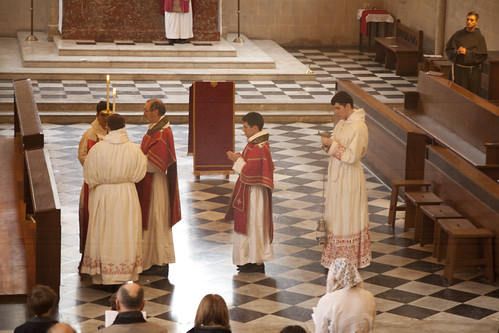 |
| Proclaiming the Gospel: Dominican Rite |
The letter of the 'four Cardinals' seeking a clarification of the meaning of Amoris laetitia raises the question: what could happen next? In terms of official process, Cardinal Burke has answered: a formal 'correction' of the Holy Father. This kind of thing is so rare in the Church that the way this could happen, and the implications it could have, are simply not mapped out by custom, but only by theological speculation.
The theoretical possibility of the condemnation of a reigning Pope for heresy, in such a way that has canonical consequences, is explained helpfully by Robert Siscoe here. Although this account seems sensible to me, I'm no expert and no doubt some will find fault with it. I don't want to get into the details, however: Siscoe's analysis can serve as a reference point, the view of a traditionalist, but definitely not a sede vacantist. My point would be: if this is what people like him think, then the hoops people are going to have to jump through to make such a thing happen are, for practical purposes, insuperable. Call a council of the Church? Get it to meet? Get it to denounce him? Get it to recognise such a denunciation as activating his loss of office? Elect a new Pope? We'll all be having snow-ball fights in hell before this happens.
But if that is so, what will happen? Or, perhaps better: what is happening?
As Cardinal Burke noted, a formal correction of the Pope might come from just a single cardinal - or, we might add, of non-cardinals. If this doesn't depose the Pope (it certainly wouldn't be enough on the Siscoe analysis), what is the point of it? The point is that it is part of process, in some hypothetical situation, in which it becomes clear to at least some people that the teaching of the Church is one thing, and the published opinion of the Pope (or what can be drawn from his publications and his silence with moral certainty), another. If that becomes clear, then it has implications, at least for the people to whom it becomes clear.
Bear in mind that, in fact, the Church is permanently in this situation, according to some people. The Greeks told us back in 1054 that the Pope was in error for adding the filioque to the Creed. In 1870 the 'Old Catholics' thought that the Pope and the First Vatican Council was in error over the definition of Papal Infallibility. In both cases, they, like many, many, groups in between, went into schism, which is to say that they stopped accepting the authority or communion of bishops and others who sided with the Pope.
In many ways this is a self-defeating strategy, since it leaves the Pope and his supporters on their own with their supposed error. It is particularly problematic if you believe in the Papacy as an institution, since the schismatics lost it. So most people who have, over the centuries, thought the Pope was wrong, have simply muddled along in the Church, sometimes acting disobediently, sometimes keeping their heads down.
That's not to say that it doesn't make a difference that a pope's error be publicly demonstrated, in some manner with serious moral force. It makes a difference for the people who accept this demonstration, and if they are numerous then it will have an affect on the Pope and the Church. The kind of affect is the kind of affect we quite standardly see in the Church, or come to that in any institution, when a large number of people regard the leader as going off the rails, even if they can't remove him. The leader in question will find it harder and harder to get things done: his moral authority and practical power will ebb away.
This can happen to a greater or lesser extent. At the lesser end of the scale the leader can eject or simply ignore the disaffected people and carry one. At the greater end he will find his job impossible, and the institution ungovernable. The general loss of authority will be magnified where the disputed matter is at issue; even if the leader can't get things done on that topic, in other aspects of his job he may find everything carrying on as normal.
It is important to remember that this is a perfectly familiar process in human affairs, and usually far preferable to violent revolution. Under Pope Benedict, many prelates and curial officials seemed to be opposing his initiatives simply by not being very helpful, by ignoring them, quietly contradicting them, and so on. Pope Benedict's most memorable moves were cooked up 'motu proprio', by his own initiative, which is to say that they did not emerge from the curial machinery. The sidelining of the curia has gone even further in the present pontificate, but the policy can be traced back to Pope John Paul II and even to Pius X. All these Popes encountered massive and entrenched opposition, within Rome and around the world. A feeling that the Pope is not just wrong-headed, but acting contrary to the Faith, among a significant proportion of people, would make things much more difficult. But the ways it would make things difficult, for the most part, would be the ways that opponents of papal policies have always made things difficult.
I don't want to suggest that the current crisis is not more serious than what was going on, say, in the 1970s and 1980s, although we should not imagine that was any kind of golden age of Church unity. The attacks on Cardinal Burke and his co-signatories from a small number of other prelates have been peculiarly unrestrained; the silence of many more prelates who are in office may be even more significant. The tone of Bishop Frangiskos Papamanolis is reminiscent of something from the 16th century. If enough people line up on either side of the argument, publicly or not, and if the strength of feeling is great enough, the Church will become ungovernable very quickly. Official documents will cease to have weight if they are regarded as emanating from one party or the other, rather than from the Holy See. Unrelated issues will become impossible to resolve if ordinary civil relations between bishops and Cardinals can't be taken for granted, and if routine meetings are cancelled because of the danger of confrontation spilling over. Outsiders will become unwilling to deal with the Church's representatives if they start looking like the partizans in a civil war, instead of the officers of a unified body. People will be reluctant to give money to the Church for the same reason. This could all happen in a few months, if the crisis continued to build up steam. Or it could fizzle out.
In this situation, leaders can change tack, resign, or soldier on. On the last option, institutional trench warfare can go on indefinitely, interspersed with purges perhaps, but purges tend not to be totally effective, and can only reach so far down the chain of command. Any minimally sane new pope arriving on the scene will be keen to make a big reconciling gesture, even if one side of the argment has been quite effectively subdued (Leo XIII offers a precedent). Even if things develop in the most dramatic way in the coming months, the crisis could still go on for a long time, and when it ends, end with more of a whimper than a bang.
But this being the Church, and not just any other institution, it will have to end with the clarification of doctrine. It can come soon or late, but it will come.
Support the work of the LMS by becoming an 'Anniversary Supporter'.
Annual Requiem in St Benet's Hall
Last Saturday the annual Requiem Mass I organise in St Benet's Hall chapel took place. St Benet's is the Benedictine house of studies and a Permanent Private Hall of Oxford University.
It is celebrated by Fr Edward van der Burgh, was is an alumnus and indeed a former JCR President.
He was joined by Fr Gabrial Diaz as deacon, and the Rev Mr Philip Prince, a permanent deacon based in the parish of SS Gregory & Augustine up the road.
We had an impressive serving team (of six) and a good-sized schola (of eight), the latter led by Thomas Neil, now living on the Isle of Wight.
There isn't a great deal of room for the ceremonies, but the clergy managed. It isn't a big chapel but the real problem is the way it has been re-ordered. I bring in a specially-built wooden platform to replace the missing footpace. The altar is also so small we can't fit more than four candlesticks on it. However, it went very well and the dead, former students, staff, and benefactors, were I am sure happy that we made the effort to celebrate Mass for them with solemnity.
Support the work of the LMS by becoming an 'Anniversary Supporter'.
Is Brendan O'Neil a snowflake?
 I'm reposting this from Facebook, with a little extra commentary.
I'm reposting this from Facebook, with a little extra commentary.
---------------------
Thus far FB. For my temerity in noting these events, I have now been blocked and unfriended by O'Neil.
The alliance between Catholics and libertarians is always strictly tactical, not strategic, as I've pointed out a few times on this blog. What is interesting is that O'Neil has behaved in exactly the way that what he calls the 'snowflakes' of the left have behaved, for which he has been lambasting them for years. They proclaim their openness to ideas, they talk about free speech, but when challended by actual, scholarly, arguments about something they hold dear, they throw their toys out of the pram.
Clearly, the idea that '15th century monks' were evil and oppressive is just too close to his heart for O'Neil to brook dissent. The funniest thing, really, is the idea that 15th century monks, or indeed monks of any century, somehow had a 'dominion over truth'. This is Dan Brown merging into Philip Pullman, on speed. Long before the 15th century there was a brisk non-monastic, commercial book-copying industry in London and the University towns. The monks were important in preserving classical learning in the early Middle Ages, but a funny kind of 'dominion over truth' that was: copying books they didn't agree with being more or less the opposite of Brenden O'Neil's social media policy.
Confirmations in London: photo essay
John Aron took lovely photographs of the Confirmations which took place last Saturday at St James' Spanish Place. Bishop John Sherrington, an auxiliary bishop of the Archdiocese of Westminster, officiated. There were I think 20 candidates.
Support the work of the LMS by becoming an 'Anniversary Supporter'.
Young trads: faddish and rigid
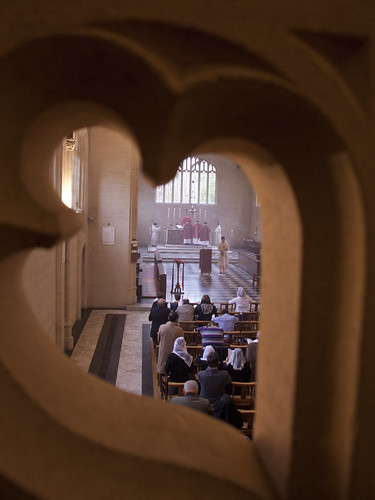 |
| Dominican High Mass in Oxford with the Latin Mass Society |
The Holy Father's discussion of the motivation of young people who like the Traditional Mass has been somewhat eclipsed by other news, but I wanted to come back to it. There is more than has usually been quoted; here's a bit more context from Rorate Caeli.
It is helpful to put the two passages side by side. They have in common the Pope's puzzlement, and his coming up with an explanation which is unflattering. But the two descriptions are mutually exclusive.
What is rigidity? It means an attachment to principles; since this is derogatory, the attachment is excessive, or the principles themselves are mistaken. It implies stubborness, an inability to change, even when one should.
What is it to be 'addicted to a certain fashion'? To fall victim to fashion is to change from one thing to another; since this is derogatory, the implication is that the change is not a good one. Fashion victims are people without inner stability, without principles, when they should have them, such as would prevent one being blown every which way when fashions sweep in.
It is very interesting that the Pope should say, one day, that Tradition is a unhealthy fashion which has swept overly impressionable young people off their feet. And then, a few months later, after further reflection, that Tradition is a refusal to follow fashion, a refusal to adapt to the times, a refusal to receive impressions from outside.
Could it in some way be both? Young traddies fail to have the right principles, so they are swept up by a fashion, and they acquire the wrong principles, which they then stick to in an unreasonable way. This diagnosis is just about possible for one person, who undergoes a surprising change of personality halfway through the process, but it couldn't work for as an explanation of a whole movement. The idea, after all, is to explain traditionalism in terms of a particular character trait which traddies have. Is that trait the trait of being impervious to fashion, or being too open to it? It really can't be both.
When one meets this kind of incoherent account of a person't personality, it is an indication that the person giving the explanation hasn't grasped something. If your explanation of why Napoleon invaded Russia is psychologically incompatible with your explanation of why he signed a Concordat with the Church, then you need a new one.
What is it that Pope Francis can't understand? I am sure it would help him in his 'digging' if he actually met some young traditionalists, spent some time with them, and listened to them. As far as I know he has never done this. What might he discover?
He might discover that young Catholics who find out about the recent history of the Church, and of the liturgy, frequently have the impression that they have discovered something rather exciting, something rather glorious, which has been hitherto hidden from them. This is not about succumbing to a fashion, and it is still less about refusing to move with the times. It is an authentic, personal response to newly available information, and a newly discovered liturgical experience.
This response, of recognising the sacrality and spiritual value of the ancient liturgical tradition, is exactly the same response as that made by Catholics of previous generations, including all the saints of the past. They all loved the Mass, they all recognised Christ in it, and it was the ancient Mass which they were loving, if we go back beyond the mid-1960s. The only difference is that the yong trads of today often discover it only after a childhood of experiencing the Novus Ordo.
This phenomenon cannot be explained by reference to a personality disorder of a minority of young people. The realisation that the ancient Mass is something distinct and interesting is going to hit every young Catholic exposed to it from now on, and at least some of them will like it. It is as simple as that, and it isn't going to go away.
Support the work of the LMS by becoming an 'Anniversary Supporter'.


